In-Depth Review of the Coway Airmega AP-1512HHS: A Smart Air Purifier for Cleaner Air
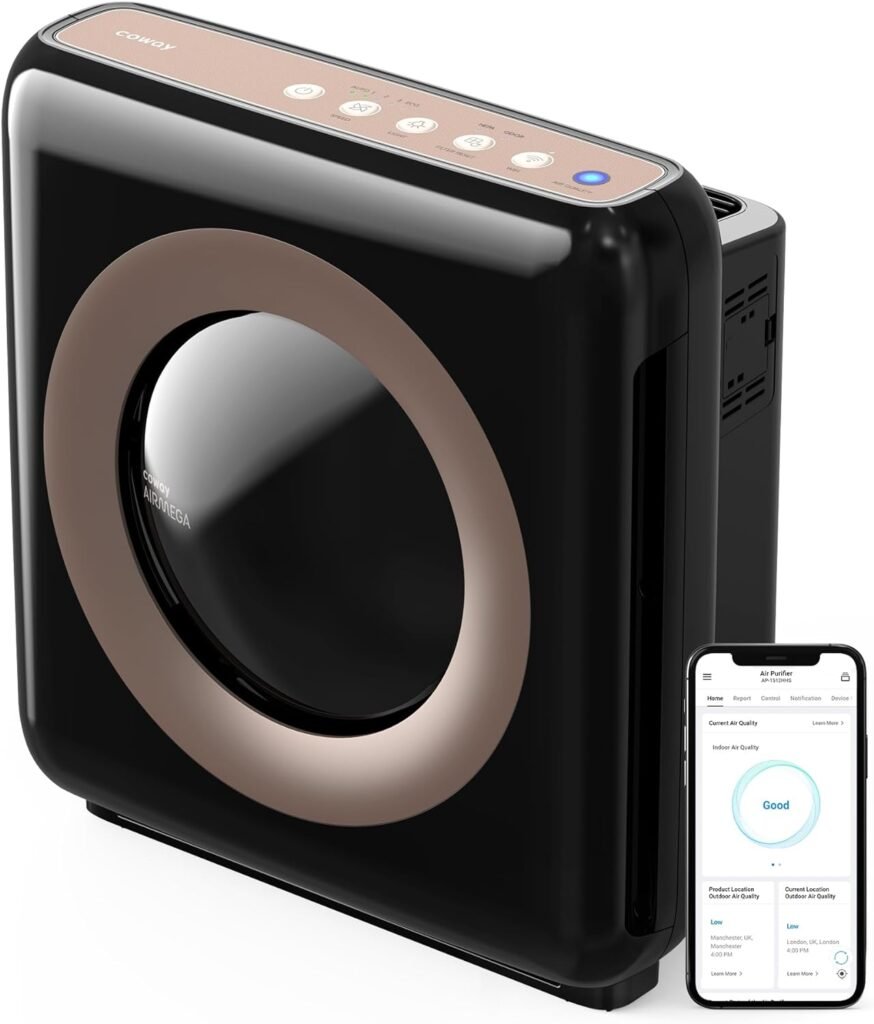
Overview of the Coway Airmega AP-1512HHS The Coway Airmega AP-1512HHS is a prominent model in the air purification market, designed to enhance indoor air quality in various environments, including homes and offices. This smart air purifier is equipped with advanced technology that effectively combats pollutants, allergens, and irritants, making it an essential tool for those seeking cleaner air. The design of the Airmega AP-1512HHS is both modern and compact, allowing it to blend seamlessly into different interior styles while occupying minimal space. One of the standout features of the Airmega AP-1512HHS is its powerful filtration system. It utilizes a four-stage filtration process that includes a pre-filter,HEPA filter, activated carbon filter, and a Vital Ion option. The pre-filter captures large particles such as dust and pet hair, while the HEPA filter is highly effective at trapping 99.97% of airborne contaminants sized 0.3 microns and larger, including pollen, smoke, and mold spores. The activated carbon filter further enhances air purification by absorbing odors and volatile organic compounds (VOCs), making the unit highly versatile for various air quality challenges. In terms of specifications, the Coway Airmega AP-1512HHS has a clean air delivery rate (CADR) of 246 cubic feet per minute (CFM), ensuring that even medium to large-sized rooms receive thorough air cleaning. The unit operates quietly and features a smart mode that automatically adjusts the fan speed based on the level of pollution detected. Additionally, its energy-efficient design ensures minimal environmental impact, making it suitable for prolonged use. Overall, the Coway Airmega AP-1512HHS stands out in the air purifier market, offering a combination of performance, efficiency, and user-friendly features that cater to a wide range of air quality needs. Performance and Efficiency Analysis The Coway Airmega AP-1512HHS stands out in the field of smart air purifiers, offering impressive performance metrics that justify its popularity among consumers. One of the primary features of this model is its remarkable air purification capability. It employs a four-stage filtration system, which includes a pre-filter, a deodorization filter, and a True HEPA filter. This design effectively captures and eliminates up to 99.97% of particles as small as 0.3 microns, including allergens, dust, pet dander, smoke, and odors. In various tests, the Airmega AP-1512HHS has consistently demonstrated an ability to improve indoor air quality significantly within a short period. Noise levels during operation are crucial for users seeking a peaceful environment. The Coway Airmega AP-1512HHS operates at different fan speed levels, ranging from quiet to powerful. At its lowest setting, the noise level is comparable to a whisper, making it suitable for bedrooms and other quiet spaces. Even at higher settings, the sound remains relatively unobtrusive, which is a significant advantage over some of its counterparts that produce more intrusive noise. Energy efficiency is another area where the Airmega AP-1512HHS excels. Certified by Energy Star, this model consumes only 50 watts or less, depending on the fan speed, ensuring that it provides clean air without substantially increasing electricity bills. Its optimized design allows it to maintain high energy efficiency while delivering impressive performance across a range of pollutants. When compared to other popular air purifiers in the same category, such as the Dyson Pure Cool and the Levoit LV-H132, the Coway Airmega AP-1512HHS offers competitive advantages in both purification capabilities and energy consumption. Users seeking a reliable, efficient solution for managing indoor air quality will find the Coway Airmega AP-1512HHS to be a superior choice, particularly when considering its combination of affordability and effective performance metrics. User Experience and Setup The Coway Airmega AP-1512HHS has garnered attention for its user-friendly design and straightforward setup process. Upon unboxing, many users find it easy to assemble the unit, with clear instructions provided in the manual. Most consumers report that they can have the air purifier up and running within minutes, which speaks to its convenience for individuals unfamiliar with air purification technology. The user interface of the Coway Airmega is often praised for its simplicity. Equipped with intuitive buttons and a digital display, it allows users to monitor air quality in real time and adjust settings effortlessly. The air purifier features a filter change indicator, enabling users to maintain optimal performance without the burden of constant manual checks. Alongside its efficiency, the unit comes with a remote control, providing additional convenience for users who prefer adjusting settings from a distance. Real-life testimonials highlight how the Coway Airmega AP-1512HHS positively impacts daily living environments. Users often express satisfaction with its whisper-quiet operation, especially during nighttime use, which makes it suitable for bedrooms or study areas. Many reviews cite a noticeable improvement in air quality and a reduction in allergy symptoms, underscoring the air purifier’s effective filtration system. Additionally, the maintenance requirements surrounding filter changes are manageable; users are advised to replace the filters approximately every six months, depending on usage and air quality conditions. However, a few concerns have been raised regarding the initial cost of filters and the frequency of replacement. While some users feel the expense is justified given the performance and benefits offered by the Airmega, others seek more affordable options. This feedback emphasizes the importance of budgeting for ongoing maintenance when considering this purifier. Final Verdict: Is the Coway Airmega AP-1512HHS Worth It? After thoroughly evaluating the Coway Airmega AP-1512HHS, we can conclude that it presents a compelling case for anyone in search of an efficient air purifier. Firstly, its performance is commendable, effectively capturing pollutants, allergens, and odors through its four-stage filtration system. This capability makes it particularly beneficial for individuals suffering from allergies or respiratory issues, as well as for households with pets, where dander and airborne particles are prevalent. The price point of the Coway Airmega AP-1512HHS is another aspect worth noting. While it may be steeper than some competitors, the features it offers, including a filter replacement indicator and energy-efficient operation, contribute to its overall value. When calculating long-term benefits, the initial investment seems justifiable, especially considering the cost savings associated with reduced energy consumption. Furthermore, the durability of this model reinforces its
The Impact of Air Purifiers on Indoor Air Quality
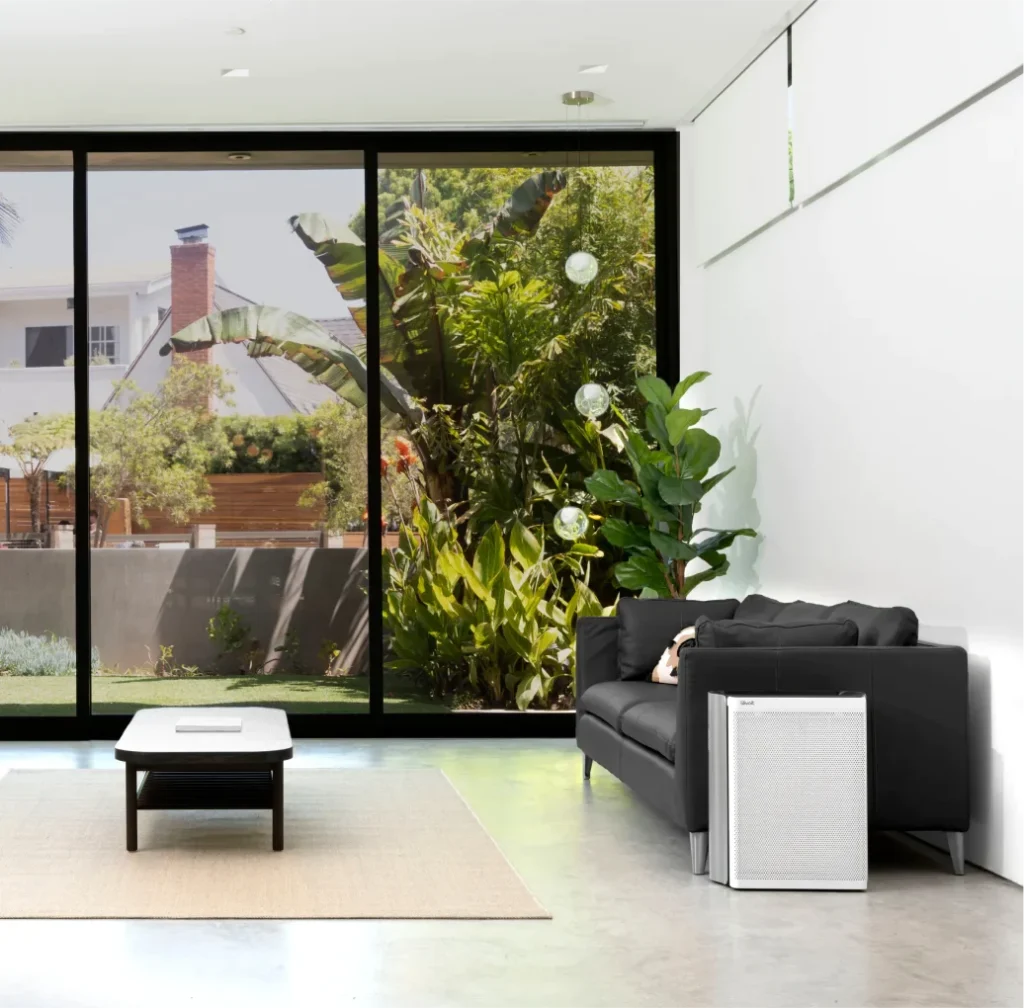
Introduction Indoor air quality (IAQ) has gained significant attention in recent years, especially as people spend more time indoors due to lifestyle changes, urbanization, and the recent global pandemic. Poor air quality can lead to a variety of health issues, including respiratory ailments, allergies, and other long-term health problems. This article aims to explore the impact of air purifiers on indoor air quality, offering a comprehensive review of scientific research, consumer insights, and practical considerations for health enthusiasts, consumers, and pet owners. Importance of Indoor Air Quality Indoor air quality refers to the air quality within and around buildings and structures, particularly as it relates to the health and comfort of occupants. It is influenced by numerous factors, including ventilation, humidity, and the presence of pollutants. Poor IAQ can lead to short-term effects such as headaches, fatigue, and irritation of the eyes, nose, and throat, as well as long-term effects like chronic respiratory diseases and heart disease. With many individuals spending up to 90% of their time indoors, especially in urban settings, understanding and improving indoor air quality has become vital. Role of Air Purifiers Air purifiers serve as a practical solution to improve indoor air quality by removing harmful pollutants. These devices work by filtering the air in a room or building, trapping particles such as dust, pollen, pet dander, and even volatile organic compounds (VOCs). The effectiveness of an air purifier largely depends on its design, filter type, and maintenance. As awareness about environmental health grows, more consumers are turning to air purifiers to enhance their living spaces. Air Purifier Effectiveness How Air Purifiers Work Air purifiers typically utilize one or more filtration technologies to remove contaminants from the air. The most common types include HEPA (High-Efficiency Particulate Air) filters, activated carbon filters, and UV light purifiers. HEPA filters can capture up to 99.97% of particles larger than 0.3 microns, making them effective against allergens and even certain bacteria. Activated carbon filters work by adsorbing gases and odors, while UV light purifiers can neutralize microorganisms. Key Performance Metrics To assess the effectiveness of air purifiers, several performance metrics are often considered: Clean Air Delivery Rate (CADR), filter life, and noise levels. CADR indicates the volume of filtered air delivered, with higher numbers signifying better performance. Filter life determines how often filters need to be replaced, impacting the long-term cost and maintenance of the unit. Noise levels are essential for consumer comfort, particularly in bedrooms or quiet spaces. Factors Affecting Effectiveness The performance of air purifiers can be influenced by various factors, including room size, air circulation, and the type of pollutants present. A unit that is too small for a large room may struggle to provide adequate filtration. Additionally, air circulation plays a crucial role; if the air purifier is placed in a corner, it may not effectively capture all pollutants. Therefore, choosing the right air purifier for the specific environment is key to maximizing its effectiveness. Types of Air Pollutants Common Indoor Pollutants Indoor air is often laden with a variety of pollutants, including particulate matter, biological contaminants, VOCs, and chemical residues. Particulate matter encompasses dust, smoke, and allergens, while biological contaminants include mold, bacteria, and viruses. VOCs, found in many household products like paints, cleaners, and furnishings, can significantly impair air quality and pose health risks. Sources of Air Pollution Common sources of indoor air pollution include household cleaning products, cooking emissions, and building materials. Poor ventilation can exacerbate these issues, allowing pollutants to accumulate and persist in the indoor environment. Additionally, activities such as smoking indoors, using candles, or burning incense can introduce harmful substances into the air, further compromising air quality. Health Implications of Pollutants The health implications of indoor air pollutants are profound. Exposure to particulate matter can trigger allergies and asthma attacks, while VOCs are linked to headaches, dizziness, and even long-term neurological damage. Vulnerable populations, including children, the elderly, and those with preexisting health conditions, are particularly at risk. Understanding these implications underscores the importance of measures like air purifiers to mitigate these risks. Consumer Satisfaction and Preferences Survey Results on Consumer Experience
Is It Worth It to Buy an Air Purifier?

Air purifiers are devices designed to improve indoor air quality by filtering out pollutants, allergens, and unpleasant odors. They work by drawing in air from the surrounding environment, processing it through various filtration systems, and then releasing purified air back into the room. The primary purpose of air purifiers is to create a healthier living or working environment, particularly for individuals with allergies, asthma, or other respiratory conditions. There are several types of air purifiers available on the market, each employing different technologies to combat indoor air pollutants. One of the most common types is the HEPA (High-Efficiency Particulate Air) filter, which is capable of capturing at least 99.97% of particles that are 0.3 microns in size. This includes dust, pollen, mold spores, and pet dander, making HEPA air purifiers especially beneficial for allergy sufferers. Activated carbon filters are another popular option. These filters use a porous material to adsorb a wide range of gaseous pollutants, including volatile organic compounds (VOCs) and odors from cooking, pets, or smoke. Their ability to neutralize these unwanted smells makes them ideal for residential settings. Furthermore, UV air purifiers utilize ultraviolet light to target and eliminate airborne pathogens such as bacteria and viruses, making them particularly valuable in healthcare facilities. Using an air purifier can provide a multitude of benefits across various environments. In homes, they can significantly reduce allergy symptoms and create a more comfortable atmosphere. In office spaces, air purifiers contribute to a healthier work environment, potentially increasing productivity and reducing sick days. In hospitals, their role in purifying the air becomes even more critical, as they help minimize the spread of infections and protect vulnerable patients. Overall, air purifiers are vital tools in enhancing the quality of indoor air, thereby promoting better health and well-being. Health Benefits of Air Purifiers Air purifiers have gained significant attention for their potential health benefits, particularly for individuals suffering from allergies and respiratory conditions. One notable advantage of utilizing an air purifier is its ability to alleviate allergy symptoms. Common allergens such as pollen, mold spores, and dust mites can accumulate in indoor environments, leading to discomfort and health issues. Scientific studies have shown that air purifiers equipped with High-Efficiency Particulate Air (HEPA) filters can effectively capture and retain these allergens, resulting in cleaner air. Individuals who have incorporated air purifiers into their homes often report experiencing fewer allergy attacks, improved breathing, and enhanced overall comfort. Moreover, air purifiers can play a vital role in reducing asthma triggers. For people with asthma, exposure to pollutants such as smoke, pet dander, and strong odors can provoke severe reactions. Research has indicated that air purifiers help diminish these triggers, allowing for better management of asthma symptoms. Clinical studies highlight significant reductions in emergency room visits for asthma exacerbations among users with properly maintained air purifiers, thereby promoting a more stable health condition. Beyond the immediate relief from allergies and asthma, air purifiers contribute to the elimination of harmful particles, including smoke and volatile organic compounds. This is particularly beneficial for vulnerable populations such as children and the elderly, who may have heightened sensitivity to poor air quality. Improved indoor air quality can lead to enhanced sleep patterns, increased productivity, and a better quality of life overall. Real-life testimonials from users often emphasize how their health has improved since incorporating air purifiers into their living spaces, illustrating the positive impact these devices can have on daily life. Factors to Consider Before Buying an Air Purifier When contemplating the purchase of an air purifier, consumers should evaluate various factors to ensure they select a device that best meets their needs. One of the primary considerations is the size of the room where the air purifier will be used. Each air purifier has a specified coverage area, typically measured in square feet. Purchasing a unit that is too small for a large room may lead to inadequate air purification, while an oversized model may be unnecessarily costly. Another crucial factor involves the type of filters used in the air purifier. HEPA filters, for instance, are renowned for their efficiency in trapping small particles, while activated carbon filters excel at removing odors and volatile organic compounds (VOCs). It is essential to understand the filter types available and their specific functions to address personal concerns, such as allergies or smoke removal. Moreover, consumers should consider the frequency and cost of filter replacements to assess long-term maintenance expenses. Noise levels can also be a determining factor, particularly if the air purifier will be placed in a bedroom or quiet workspace. Many manufacturers indicate the decibel (dB) levels for their units, allowing potential buyers to compare options effectively. Additionally, energy efficiency should not be overlooked; opting for models that carry Energy Star ratings can lead to significant savings on electricity bills over time. Lastly, certifications, such as those from the Association of Home Appliance Manufacturers (AHAM), provide a measure of reliability and effectiveness. It is advisable for consumers to investigate these grades in conjunction with user reviews to make well-informed purchasing decisions. Conducting thorough research beyond merely well-known brands is vital to ensure that the chosen air purifier perfectly addresses personal air quality requirements. Top 5 Best-Selling Air Purifiers on Amazon As consumers increasingly seek solutions for indoor air quality, air purifiers have become essential appliances. Amazon offers a variety of options, but here are five of the best-selling air purifiers that stand out based on features, user reviews, and overall performance. 1. Levoit Core 300 Air Purifier The Levoit Core 300 is a compact, lightweight air purifier designed for small to medium-sized rooms. Featuring a three-stage filtration system, including a HEPA filter, it captures 99.97% of airborne particles. Its quiet operation and energy efficiency make it a popular choice for bedrooms or offices. The sleek design and multiple fan speeds add to its appeal. Buy here. 2. Coway AP-1512HH Mighty Air Purifier The Coway AP-1512HH is known for its advanced four-stage filtration system that includes a pre-filter, HEPA filter, activated carbon filter,
What is the Best Air Purifier on the Market Today?
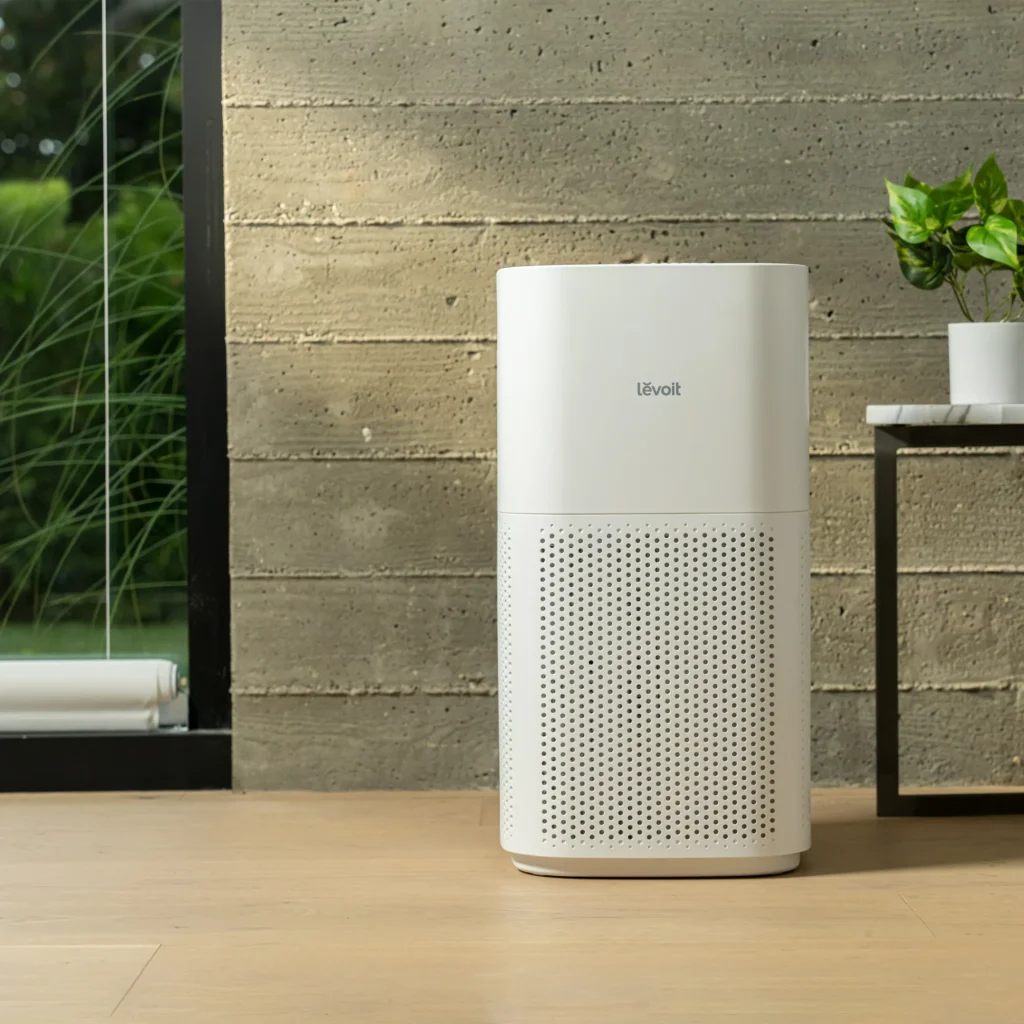
Introduction to Air Purifiers Air purifiers have emerged as vital appliances in contemporary households, primarily due to the increasing awareness regarding indoor air quality. These devices serve the essential function of filtering and removing various airborne pollutants, allergens, and harmful particles, contributing to a healthier living environment. As we spend a significant amount of time indoors, the quality of the air we breathe becomes paramount, leading many to seek out effective air purification solutions. The workings of an air purifier typically involve a series of filters designed to trap particles like dust, pollen, pet dander, and smoke. Most commonly, HEPA (High Efficiency Particulate Air) filters are utilized as they can capture up to 99.97% of particles that are 0.3 microns in size. Additionally, many advanced models also include activated carbon filters, which are effective at adsorbing gases and odors, further enhancing indoor air quality. Growing concerns about environmental issues such as pollution and allergens have spotlighted the need for air purifiers. According to research, indoor air can often be more contaminated than outdoor air, leading to health complications ranging from allergies and asthma to more severe respiratory diseases. Common pollutants like volatile organic compounds (VOCs), dust, and mold spores occur not only from external sources but also from standard household items like cleaning supplies, furniture, and synthetic materials. The cumulative exposure to these irritants can significantly affect well-being, making the choice of an appropriate air purifier crucial. In light of these considerations, air purifiers have rapidly become essential elements in the homes of health-conscious individuals. Choosing the right air purifier involves understanding the specific needs of your environment, the types of pollutants you are looking to eliminate, and the features available in various models. This growing demand indicates that the right air purifier can make a meaningful difference in improving indoor air quality. Key Features to Consider When selecting an air purifier, several key features should be evaluated to ensure that the device effectively meets individual requirements. One of the most important aspects is the type of filtration system. The most recognized standard is the HEPA filter, capable of capturing 99.97% of particles that are 0.3 microns or larger. However, some models also incorporate activated charcoal filters, which are effective in removing odors and certain airborne chemicals. Understanding the filtration technologies available allows consumers to choose a purifier that directly addresses their air quality concerns. Another critical factor to consider is the suitability of the air purifier for specific room sizes. Manufacturers often provide a square footage rating, indicating the maximum area the unit can effectively purify. Selecting a model that fits the space dimensions is essential for optimal performance; a unit designed for larger areas will typically have a more powerful motor and fan system. Noise levels are often a concern, particularly in bedrooms or quiet environments. It is advisable to check the decibel ratings of different models, as some purifiers operate at lower noise levels, making them ideal for nighttime use. Energy efficiency is also crucial, especially for units that will be running consistently. Look for models with the Energy Star label, which indicates compliance with energy efficiency guidelines, helping to reduce electricity bills. Smart features have become increasingly popular, such as remote control options, air quality sensors, and connectivity with apps. These functionalities can enhance user convenience and provide real-time data on air quality. Lastly, maintenance requirements should not be overlooked. Regular filter replacements and easy access to internal components for cleaning can affect the longevity and performance of the air purifier. Considering these features will equip consumers to make an informed decision that aligns with their specific needs. Top Air Purifier Brands in 2024 As consumers seek to improve indoor air quality, several brands have emerged as leaders in the air purifier market in 2024. Each of these brands has established a reputation for quality, innovation, and reliability, making them popular choices for customers looking to find the best air purifier for their needs. Dyson is widely recognized for its cutting-edge technology and stylish designs. The brand offers a range of products that combine air purification with fans and heaters. Dyson air purifiers are equipped with advanced filtration systems, including HEPA filters that capture 99.97% of particles, making them effective against allergens and pollutants. Additionally, their smart features allow users to monitor air quality in real time through a mobile app, enhancing convenience and ease of use. Another notable brand is Coway, famed for its comprehensive product range that includes various models tailored for different room sizes and air quality needs. Coway’s air purifiers utilize a multi-stage filtration system, featuring a pre-filter, deodorization filter, and a true HEPA filter, ensuring that even the smallest pollutants are removed. The brand has garnered multiple awards for its performance and energy efficiency, positioning itself as a top choice for environmentally-conscious consumers. Honeywell, with its long-standing reputation in home appliances, offers a broad array of air purifiers designed to meet various consumer needs. The Honeywell brand is known for its reliable performance in removing allergens, smoke, and odors. Many models feature easy-to-use controls and filter replacement indicators, making maintenance straightforward for users. Their True HEPA technology is particularly effective in improving overall air clarity and quality. Lastly, Levoit has made a name for itself in the budget-friendly segment without compromising on performance. The company focuses on compact designs that are perfect for smaller spaces. Levoit air purifiers often include features such as quiet operation and energy-saving settings, appealing to consumers seeking a cost-effective solution for enhancing indoor air quality. Comparative Review of Popular Models In today’s market, a variety of air purifiers are available, each with unique features and varying levels of performance. This comparative review delves into some of the leading air purifier models, assessing their performance, price, design, and customer feedback, enabling consumers to make informed decisions tailored to their specific needs. The first model worth discussing is the Dyson Pure Cool Link. Renowned for its sleek design and advanced technology, this air purifier not only filters
The Best Rated Bedroom Air Purifiers on Amazon Right Now
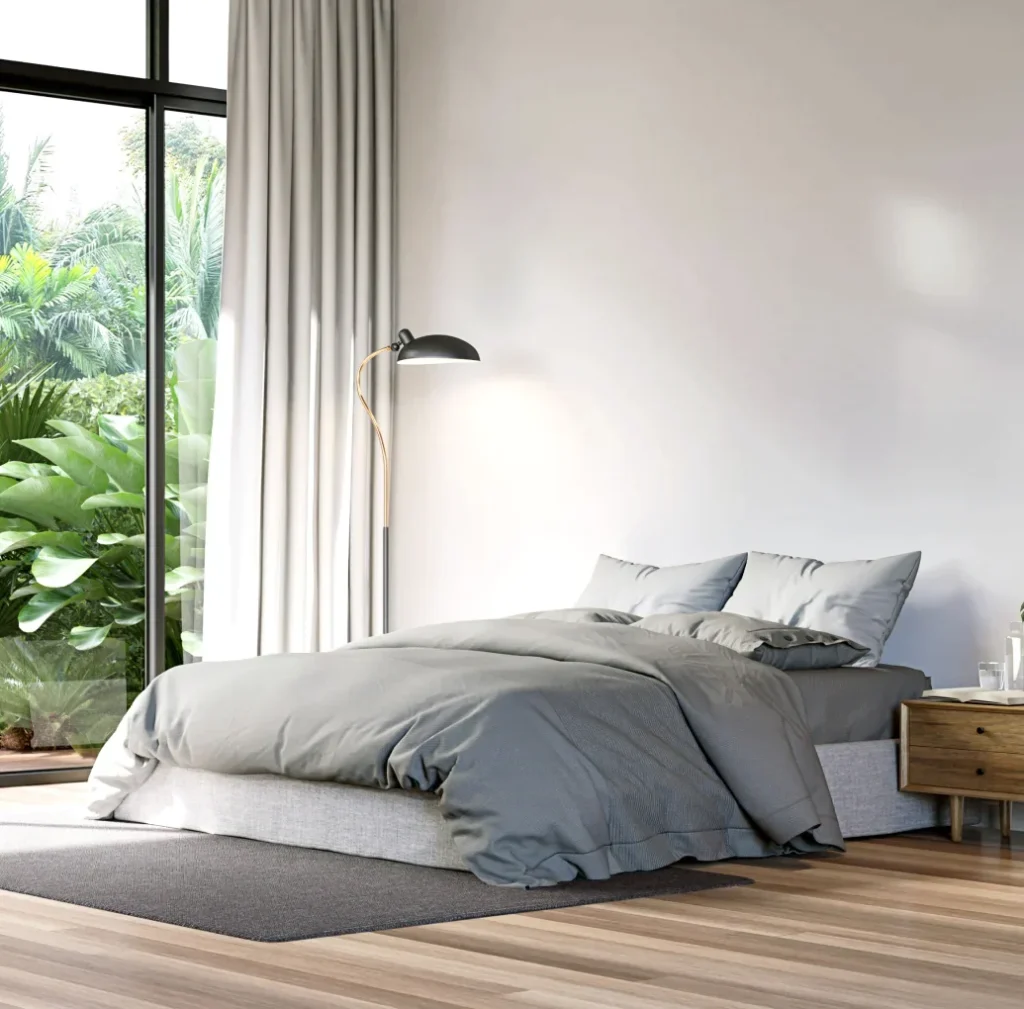
When it comes to creating a healthy and comfortable environment in our homes, air quality plays a crucial role. Dust, allergens, and pollutants can accumulate in our bedrooms, affecting our sleep quality and overall well-being. This is where air purifiers come to the rescue. With their ability to filter out impurities from the air, air purifiers have become a popular choice for those seeking cleaner and fresher air in their bedrooms.
Nanoparticles – The Invisible Killer No One Talks About

When we think of air pollution, we often picture smokestacks belching out dark plumes of smoke or vehicles emitting exhaust fumes. However, there is another type of pollution that is far less visible, yet equally concerning – nanoparticles.
Who Needs an Air Purifier?

Learn about the importance of air purifiers in maintaining a healthy home environment. Discover how air purifiers can remove pollutants and allergens, benefiting individuals with respiratory conditions, allergies, and weakened immune systems. Find out how to choose the right air purifier for your needs and enjoy the benefits of breathing cleaner air in your home.
Are UV Air Purifiers Worth It? Understanding Their Limitations

UV air purifiers have gained popularity in recent years as a solution for improving indoor air quality. These devices use ultraviolet (UV) light to kill or deactivate harmful bacteria, viruses, and other microorganisms present in the air. While they may seem like a promising solution, it is important to understand their limitations before investing in one.
Blue Pure 211i Max Air Purifier Review: Breathe Clean and Fresh Air
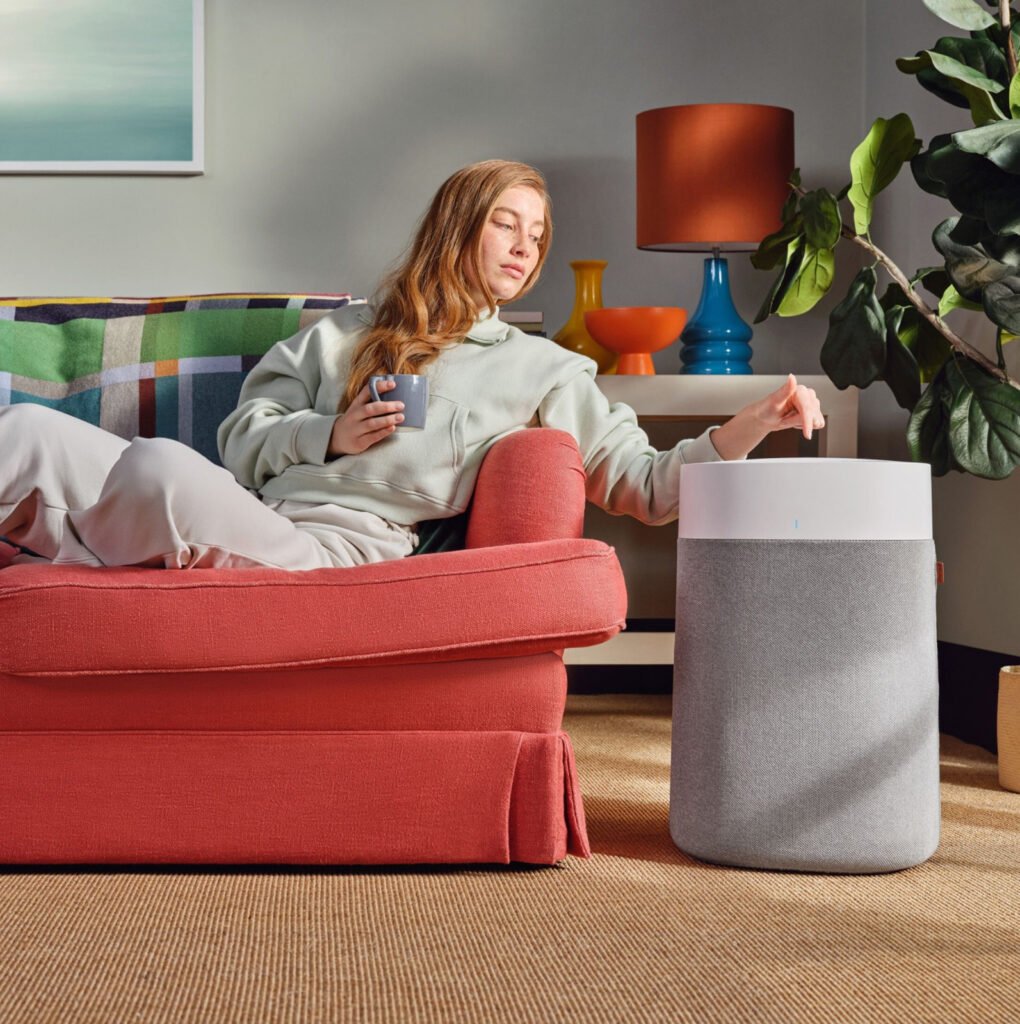
Are you tired of constantly battling allergies or struggling with poor indoor air quality? Look no further than the Blue Pure 211i Max Air Purifier. With its cutting-edge technology and sleek design, this air purifier is a game-changer for anyone seeking cleaner and fresher air in their homes or offices.
A Breath of Fresh Air: The Lowdown on Air Purifiers

The air we breathe plays a vital role in our quality of life. With pollution levels on the rise and allergens lurking in every nook and cranny, it’s no wonder that air purifiers have become a popular solution for many households.